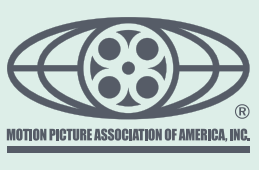 Last week the MPAA submitted its latest tax filing covering 2013. While there are few changes compared to previous years there is one number that sticks out like a sore thumb.
Last week the MPAA submitted its latest tax filing covering 2013. While there are few changes compared to previous years there is one number that sticks out like a sore thumb.
The movie industry group made a rather sizable gift of $912,000 to Carnegie Mellon University, a figure that neither side has made public before.
This brings the MPAA’s total investment in the University over the past two years to more than a million dollars.
The money in question goes to the University’s “Initiative for Digital Entertainment Analytics” (IDEA) that researches various piracy related topics. During 2012 MPAA also contributed to the program, albeit significantly less at $100,000.
TF contacted IDEA co-director Rahul Telang, who told us that much of the money is spent on hiring researchers and, buying data from third parties and covering other research related expenses.
“For any substantial research program to progress it needs funding, and needs access to data and important stakeholders who care about this research. IDEA center has benefited from this funding significantly,” he says, emphasizing that the research applies to academic standards.
“All research is transparent, goes through academic peer review, and published in various outlets,” Telang adds.
While IDEA’s researchers operate independently, without an obligation to produce particular studies, their output thus far is in line with Hollywood’s agenda.
One study showed that the Megaupload shutdown boosted digital sales while another reviewed academic literature to show that piracy mostly hurts revenues. The MPAA later used these results to discredit an independent study which suggested that Megaupload’s closure hurt box office revenues.
Aside from countering opponents in the press, the MPAA also uses the research to convince lawmakers that tougher anti-piracy measures are warranted.
Most recently, an IDEA paper showed that search engines can help to diminish online piracy, an argument the MPAA has been hammering on for years.
The tax filing, picked up first by Variety, confirms a new trend of the MPAA putting more money into research. Earlier this year the industry group launched a new initiative offering researchers a $20,000 grant for projects that address various piracy related topics.
The MPAA sees academic research as an important tool in its efforts to ensure that copyright protections remain in place, or are strengthened if needed.
“We want to enlist the help of academics from around the world to provide new insight on a range of issues facing the content industry in the digital age,” MPAA CEO and former U.S. Senator Chris Dodd said at the time.
The movie industry isn’t alone in funding research for ‘political’ reasons. Google, for example, heavily supports academic research on copyright-related projects in part to further its own agenda, as do many other companies.
With over a million dollars in Hollywood funding in their pocket, it’s now up to IDEA’s researchers to ensure that their work is solid.





